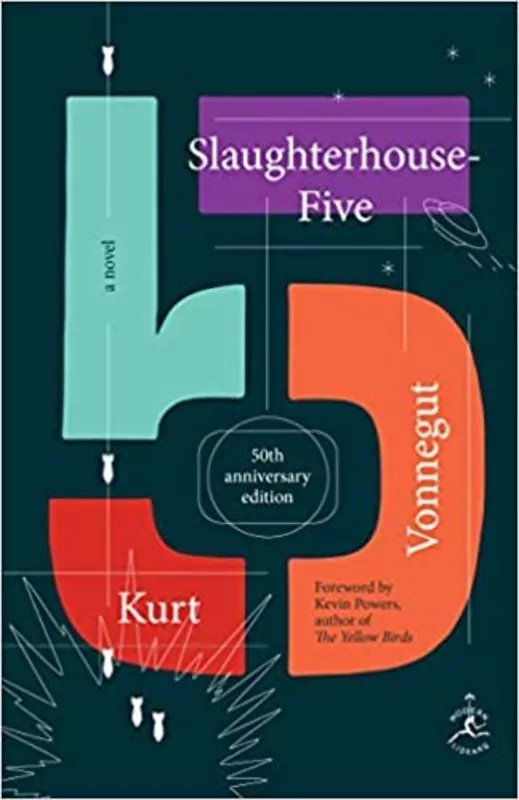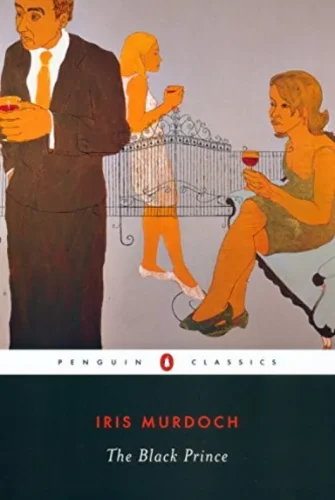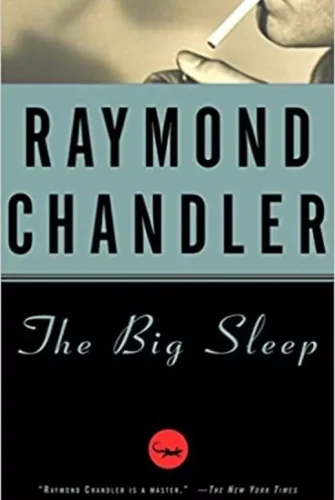Coming into existence in 1922, Billy Pilgrim leads a somewhat average life in Ilium, New York, attending night school for eye care studies and eventually getting drafted into World War II. Following the tragic hunting mishap involving his father, Billy is sent overseas and thrown into the notorious Battle of the Bulge in Belgium, where he is taken captive by the Germans. Amid the turmoil, he encounters his first instance of time-shifting, witnessing his entire existence unfolding simultaneously. Subsequently, he is shifted to a prisoner-of-war camp in Germany, and later to the urban center of Dresden, where he survives a gruesome bombardment by hiding in a refrigeration chamber of a former butcherhouse.
After the war, Billy goes back to his hometown, finishes his eye care education, and ties the knot with Valencia Merble, a prosperous founder’s daughter of an eye care school. Despite seemingly attaining the American ideal of prosperity and a family, he grapples with war recollections triggered by ordinary occurrences in his life, like a vocal quartet at his eighteenth wedding commemoration. Interestingly, Billy asserts that he was kidnapped by extraterrestrial beings, labeled Tralfamadorians, who transport him to their home planet and introduce him to fresh notions of time and existence.
After his homecoming, Billy withholds his alien occurrences until a flight mishap in 1968 leaves him as the sole survivor amidst his eye care colleagues. Following a cerebral operation and the unintended fatal incident of carbon monoxide poisoning of his wife, Billy senses an urge to reveal his extraordinary experiences to the public. He appears on a radio discussion program, writes correspondence, and even predicts his own demise in 1976, alleging that he will be assassinated at the request of a wartime associate. Billy remains resolute in his conviction, stating that he will only undergo the drone of demise and then time-shift to another juncture in his existence.

Chapter 1
Vonnegut, backed by the Guggenheim Foundation, and his comrade from the war, Bernhard V. O’Hare, returned to Dresden in 1967. While journeying in a taxi, they engage in a discussion with the chauffeur, Gerhard Müller, regarding life under communism. Vonnegut dedicates his creation Butcherhouse-Five to Müller and Mary, O’Hare’s spouse. Afterwards, Müller dispatches a tranquil Christmas card to O’Hare. Vonnegut grapples with narrating about Dresden for 23 years post his wartime experience. He devises a vibrant schematic of the narrative on the wallpaper, with every character and episode depicted in varying hues. Despite his endeavors, capturing the enormity of the destruction proves challenging. It’s not advantageous that he is anti-war, musing on a remark that scripting an anti-war tome would be as ineffective as scripting a tome against the motion of glaciers. He reminisces on his post-war life, pursuing anthropology at the University of Chicago, laboring as a law enforcement chronologist, and executing public relations for General Electric. He’s taken aback by the dearth of knowledge concerning Dresden’s ruination. Seeking insights from the U.S. Air Force, he discovers the occurrence is still kept confidential. In 1964, Vonnegut, alongside his daughter and her accomplice, paid a visit to O’Hare in Pennsylvania. He encounters Mary, who articulates qualms about the portrayal of the soldiers as champions, contending they were more akin to “infants”. Vonnegut assures her he won’t glorify combat and opts to christen his creation The Children’s Crusade. He subsequently delves deeper into the Children’s Crusade and the earlier bombing of Dresden in 1760. While instructing in Iowa, Vonnegut clinches a pact to pen three times, with Butcherhouse-Five being the premier. He ascribes its terse and disordered demeanor to the futility of cogently discussing a carnage. En route to Dresden, Vonnegut lodges a night in Boston where his perception of time gets distorted. Perusing about the obliteration of Sodom and Gomorrah, he identifies with Lot’s wife—punished for casting a glance back at the conflagration cities. He views his creation as an inevitable fiasco and resolves not to linger on the past.
Chapter 2
The narrative divulges that “Billy Pilgrim has come unstuck in time,” voyaging intermittently through his lifespan. Originating in 1922 in Ilium, New York, Billy is an uncommon, frail youngster who subsequently evolves into a prosperous eye specialist after enduring military duty in Germany and a psychological breakdown. In 1968, Billy undergoes an air disaster in Vermont, while his wife succumbs to an unassociated incident. After recuperation, Billy discourses about his 1967 interstellar abduction on a radio broadcast in New York. Upon learning of this account, Billy’s grown-up daughter, Barbara, frets about his mental well-being and escorts him back home. Soon after, Billy drafts a missive regarding the extraterrestrial beings to a local publication. Immediately upon the publication of this missive, Billy embarks on crafting another concerning his learnings from the Tralfamadore aliens. He anticipates that this correspondence will bring solace to many by elucidating the genuine essence of time. However, Barbara only amplifies her distress with his actions. The account then regresses to Billy’s military days. It narrates his bemused odyssey behind enemy lines following the calamitous Battle of the Bulge in WWII. Accompanied by three other American soldiers, Billy is recurrently rescued by Roland Weary, a man avid to be a hero. Billy’s maiden time-shifting transpires as he reclines against a tree in a Luxembourg forest, feeling despairing and abandoned by the rest. He experiences the extremes of his subsistence, from his fatality and genesis to a juvenescence recollection of being coerced to swim. Billy subsequently leaps to 1965, aged forty-one, visiting his mother in a retirement facility. A blink whisks him to a 1958 gala for his son, Robert, followed by another blink to a 1961 soirée where he’s inebriatedly unfaithful. From there, he is brusquely transported back to the wartime scenario, roused by a shaking Roland Weary. Weary and Billy are deserted by the two scouts, triggering Weary’s ire as he’s always been abandoned. He perceives them as the Three Musketeers and imputes Billy for their disbandment. Billy is suddenly transported to a 1957 oration he’s delivering as the head of the Ilium Lions Club, before being dragged back to the war as he and Weary are seized by Germans.
Chapter 3
Billy Pilgrim possessed no dominion over the past, present, or future. German irregulars ensnared him and Weary, appropriating their belongings, including a ribald illustration in Weary’s possessions. Reclining in the snow, Billy espies a reflection of Adam and Eve in the officer’s boots. Weary exchanges his boots for the young German soldier’s wooden footwear. They are ushered to a domicile brimming with detainees. Slipping into unconsciousness, Billy awakens in 1967 amidst an ocular examination. Lately, he’s taken to napping at work. Post his patient, he endeavors to engage with an eye care periodical to no avail. Billy is reverted to a captive status once he shuts his eyes. He is roused and compelled to relocate. He melds into a stream of marching detainees. A Teutonic photographer orchestrates a capture tableau of Billy surrendering. He lapses back to 1967, en route to a Lions Club gathering through a tumultuous ghetto and a razed locality in Ilium. The desolation nudges memories of post-Dresden incendiary bombing. Billy is affluent, cruising in a Cadillac adorned with John Birch Society decals. His son Robert is stationed in Vietnam as a Green Beret, and his daughter Barbara is set to wed imminently. At the Lions Club, a marine major expounds on bombings in North Vietnam. Billy is unconcerned. A sign on his office wall reinforces him in such detachment: “May the divine bestow upon me the calmness to embrace the things I cannot alter, bravery to modify the things I can, and insight perpetually to differentiate.” Post-conference, Billy heads home. He weeps while lying down for a rest. A bed massager called “Magic Fingers,” purchased to aid his sleep, vibrates while he cries. He’s transported back to Luxembourg once he shuts his eyes, marching. Fatigue is in front, his feet sore from the wooden shoes. They advance into Germany and reach a railway depot. A colonel, known as “Wild Bob,” interrogates Billy if he belongs to his unit. The colonel requests Billy to locate him in Cody, Wyoming. The soldiers, categorized by hierarchy and congested in boxcars, have to switch between sleeping and standing. They utilize a helmet as a toilet. Billy is separated from Weary. His train is motionless for two days. Once the train initiates movement, Billy time travels to the evening when the Tralfamadorians seize him.
Chapter 4
Billy finds himself unable to slumber on his daughter’s wedding night, knowing he will soon be abducted by the Tralfamadorians. He wanders through the moonlit house, answering an incorrect call from an inebriated stranger. He then uncorks a partly consumed champagne bottle and gazes at a late-night World War II documentary. Temporally confused, Billy envisions the war in reverse sequence, with planes retracting their bombs, firearms drawing back bullets, and armaments being taken apart and buried, harmless. In his altered state, humanity’s history reverts to Adam and Eve. Anticipating the extraterrestrial spacecraft, Billy ventures into his backyard. The saucer, signaled by a melodious noise resembling an owl’s hoot, lands. Once inside, Billy questions his selection, which the Tralfamadorians dismiss as a typical human response. They clarify that the moment simply exists, with all beings ensnared in it. Subsequently, Billy is anesthetized and propelled through time due to the spaceship’s acceleration. He finds himself in a boxcar crossing Germany. His sleep is agitated, causing others to refrain from sharing their sleeping shifts with him. By the ninth day of the journey, mortality begins claiming some of the captives. Roland Weary, in a different car, perishes after accusing Billy of his demise to everyone present. A car thief, Paul Lazzaro, vows vengeance on Billy for Weary’s death. Upon reaching a detention camp on the tenth night, the detainees are given coats and showers, and their garments are delivered. Among them is Edgar Derby, an older educator. As the shower water cascades, Billy traverses back to his infancy and his middle-aged years before returning to the spacecraft. He inquires about his whereabouts and the purpose of his presence. The Tralfamadorian reply emphasizes the prearranged nature of time and existence, pointing out that only on Earth is there a concept of autonomy.
Chapter 5
Billy, in his Tralfamadorian zoo enclosure, peruses Valley of the Dolls, the solitary terrestrial tome available. He discovers that Tralfamadorian literature consists of cryptic, telegram-style symbols divided by stars. Billy’s recollections bounce between his childhood journey to the American West and the German detainee camp. Post-shower and registration in the camp, the American captives join British officers with surplus provisions. The Brits initially receive the Americans with a banquet but swiftly become dismayed by their state. Amidst a Cinderella performance, Billy’s hysterical laughter lands him in the camp’s “infirmary”. He awakens sedated in a New York veterans’ psychological ward in 1948, where he had voluntarily admitted himself during his final year of optometry school, finding life aimless post-war. His ward-mate, ex-captain Eliot Rosewater, acquaints Billy with the sci-fi works of Kilgore Trout. Billy’s mother pays a visit, causing him to take cover under a blanket. Back in Germany, Edgar Derby watches over the ailing Billy, eliciting memories of Derby’s impending execution. Billy mentally returns to the veterans’ hospital, where he converses with his betrothed, Valencia Merble, and Rosewater about Kilgore Trout. Billy finds himself back on Tralfamadore, in his Sears Roebuck-furnished dome. The Tralfamadorians unveil seven human genders, five of which are imperceptible to Billy. They expound their moments of conflict and harmony, and that the cosmos’s inevitable demise will be caused by a heedless pilot. Billy’s thoughts leap to his nuptial evening in Massachusetts, where post-coital dialogue with Valencia about the war propels him back to the hospital bed in the prison camp. He encounters the violently sick American soldiers in the latrine, one being Kurt Vonnegut. The subsequent day, Paul Lazzaro, knocked unconscious after a theft attempt, materializes at the hospital. A German major recites a critique of American soldiers by Howard W. Campbell, Jr., an American Nazi propagandist. Billy awakens in 1968, working on his missive to the newspaper. His daughter, Barbara, admonishes him, intensifies the warmth, and departs. Billy’s mind shifts again to Tralfamadore, where actress Montana Wildhack, brought to mate with Billy, gradually warms up to him. Emerging from a reverie about Montana, Billy encounters a boy whose father perished in Vietnam. He imparts Tralfamadorian wisdom, alarming the boy’s mother who deems Billy eccentric. Billy’s daughter is summoned to escort him home.
Chapter 6
Billy awakens in his detainee bed after a night filled with morphine, just as he and his fellow American captives are to be relocated to Dresden. He unearths an energy-emitting object in his coat lining, which he discerns through a telepathic message that can work miracles if left undisturbed. Subsequently, Billy shares the company of Edgar Derby and Paul Lazzaro. The English officers toil on a new latrine, leaving the former one for the ailing Americans. One Englishman previously assaulted Lazzaro, who now vows to have him assassinated post-war. Lazzaro, relishing in reprisal, recounts a sadistic tale of assisting a dog in meeting its demise in agony after it bit him. He further acquaints Billy with Roland Weary’s dying wish and cautions him about responding to doorbells after the war. Billy already foresees the destiny awaiting him — Lazzaro, now aged and deranged, fulfilling his deadly vow. He recognizes this as he has repetitively journeyed through time to this juncture. By then, he perceives himself as a messianic figure, pacifying a large assembly by disseminating his comprehension of the lasting nature of moments and the insignificance of death. He presents this oration in a domed baseball park in 1976, after a Chinese hydrogen bomb assault on Chicago and the division of the United States into twenty nations. Moments after his speech, and after prophesying his own demise, he is terminated by a laser gun. Billy then reanimates in early 1945, having documented these events on a cassette kept in a bank vault. Following a hygiene lecture by an Englishman and the election of Edgar Derby as chief, the Americans are transported to Dresden. Billy, adorned in a fur-satin coat, snippets of fabric, and silver boots from a Cinderella production, resembles an absurd war jester. Upon arrival, they marvel at the beautiful city, which Vonnegut, also present, equates to ‘Oz’. They are monitored by eight ragged German soldiers and led to a former slaughterhouse, their new lodging. Dresden, mostly unscathed by war and teeming with hustle and bustle, amuses its inhabitants with the parade of prisoners, except one who is affronted by Billy’s preposterous appearance and ostensible derision of the conflict.
Chapter 7
Billy, approximately twenty-five years past his experience in Dresden, boards a plane headed to a conference in Montreal with fellow eyesight experts, including his father-in-law. As he departs, his wife, Valencia, bids him farewell while enjoying a chocolate bar. The narrator unveils the Tralfamadorians’ perspective on Valencia, her father, and all living beings as mere automatons. Billy anticipates the impending plane crash. The group of optometrists, known as the Four-eyed Bastards, entertain the passengers with ribald tunes, one of which triggers a recollection in Billy of a gruesome public execution he witnessed in Dresden involving a Polish man and a German woman. Billy nods off and is transported back to the year 1944. He awakens to Roland Weary urging the Three Musketeers to abandon him. The aircraft ultimately crashes into Sugarbush Mountain in Vermont, leaving Billy as the lone survivor with a fractured skull. Austrian ski instructors, cloaked in black ski masks, come to his aid. Whispering “Schlachthof-fünf,” the German term for “Slaughterhouse-Five” that he picked up in Dresden, Billy is sled down the mountain by the instructors. A distinguished neurosurgeon performs surgery on him, rendering him unconscious for a couple of days. During his recovery, Billy has dreams of time travel, one of which transports him back to his initial night at the slaughterhouse in Dresden. Alongside Edgar Derby and German guard Werner Gluck, he accidentally stumbles upon a room filled with unclothed females showering, an experience that marks the first viewing of naked women for Billy and Gluck. They eventually find their way to the prison kitchen, where the cook remarks on their pitiful state, declaring “All the real soldiers are dead.” Another dream following the plane crash takes Billy back to Dresden, this time in a factory producing malt syrup. The starving prisoners of war secretly consume the syrup, designated for pregnant women. On his second day, Billy tastes the syrup, and his emaciated body responds with “ravenous gratitude.” He shares the syrup with Edgar Derby, who is moved to tears by the flavor.
Chapter 8
The American Nazi spokesperson, Howard W. Campbell, Jr., endeavors to enlist the undernourished captives at the slaughterhouse into his Free American Corps, promising sustenance and a return to their homeland after the war. Edgar Derby, however, courageously opposes Campbell’s proposition, upholding the principles of freedom and Russian-American camaraderie. A sudden air-raid alarm interrupts their confrontation, though it turns out to be a false alarm. The narrator discloses the imminent destruction of Dresden. Billy drifts off to sleep in the meat locker and is transported to a confrontation with his daughter, Barbara. She attributes Billy’s peculiar beliefs regarding Tralfamadorians to Kilgore Trout, whom Billy met in his hometown of Ilium. Trout, a supervisor for newspaper delivery boys at the Ilium Gazette, is surprised that Billy has perused his works. Billy invites Trout to his wedding anniversary, where Trout unintentionally startles Maggie White, a naive and charming guest, with his cautionary tales about the hazards of publishing fictional narratives. A barbershop quartet, the Four-eyed Bastards, delivers a nostalgic melody, causing visible distress to Billy. Trout deduces that Billy has glimpsed through a “time window.” The quartet’s performance affects Billy to such an extent that he exits the room abruptly, inadvertently barging in on his son in the bathroom before reclining, endeavoring to comprehend the reason behind his perturbation. Eventually, he recollects the devastation of Dresden, where he and other American captives and their wardens endured the bombing in a meat locker, only to witness the obliteration of Dresden. Billy is transported to Tralfamadore, where Montana Wildhack, now six months pregnant, requests a narrative. He narrates the tale of Dresden’s destruction and its aftermath. In the ravaged city, the captives and their wardens discover no survivors as they scavenge for sustenance. They eventually find an unaffected suburban area where a visually impaired innkeeper and his family offer them shelter for the night. As the detainees settle in, the innkeeper wishes them a restful night in Germany.
Chapter 9
In a state of panic, Valencia, Billy’s spouse, drives to the hospital where Billy is recuperating from the plane crash. En route, she collides with another vehicle but leaves the scene without addressing the damage. Inhaling lethal levels of carbon monoxide from the faulty exhaust system, she succumbs shortly after reaching the hospital. Billy, unaware and engrossed in one of his temporal voyages, remains oblivious to Valencia’s fate. Beside him, Bertram Copeland Rumfoord, an arrogant Harvard history professor, rests recuperating from a skiing mishap. As the Air Force historian, Rumfoord is in the process of compiling a concise history of the U.S. Army Air Corps during World War II, including the contentious bombing of Dresden. Upon regaining consciousness, Billy appears comatose, yet internally, he is plotting to divulge his encounters with Tralfamadore and illuminate the world regarding the true essence of time. He discloses to Rumfoord his presence during the Dresden bombing, but Rumfoord dismisses his account. Billy then slips back in time to Dresden right before the war’s end. As the Russians were near, many Germans evacuated the area. Billy and their fellow captives chance upon a wagon, which they fill with food and mementos. Unaware of the dire state of the horses pulling the wagon, he is awakened by a German couple who highlight the suffering of the animals, moving Billy to tears. Back at the hospital, Rumfoord interrogates Billy about Dresden. Upon the arrival of his daughter Barbara, she escorts him home and hires a full-time caregiver. Feeling compelled to share his message, Billy sneaks out and heads to New York City to impart his experiences from Tralfamadore. In the city, Billy finds himself in Times Square, procuring four books by Kilgore Trout from an adult store. While there, he catches sight of a magazine headline featuring Montana Wildhack and a film portraying a young Montana. Posing as a journalist, Billy secures a spot on a radio talk show, expounding on Tralfamadore, Montana Wildhack, and his perception of time before being escorted out. Upon his return to the hotel, Billy drifts off to sleep, finding himself back on Tralfamadore where Montana is tending to their offspring. She notices Billy’s time-traveling, a phenomenon also inscribed on a silver locket she wears, engraved with the Serenity Prayer, akin to a plaque in Billy’s optometry office.
Chapter 10
The year is 1968, marked by the tragic assassinations of prominent individuals Robert Kennedy and Martin Luther King, Jr., with headlines dominated by news of Vietnam War casualties. Billy notes the Tralfamadorians’ fascination with Darwin’s theory over religious convictions and the notion that death is a natural, indispensable process. This theme is explored in Kilgore Trout’s novel, The Big Board, where extraterrestrials interrogate a human captive about Darwinism and golf. Vonnegut expresses uncertainty regarding the Tralfamadorians’ premise of perpetual life. Nevertheless, he cherishes the pleasant moments he has experienced. He recounts a memorable episode, returning to Dresden with his war comrade O’Hare. They relish simple pleasures like salami sandwiches and white wine during their flight. O’Hare presents a book predicting a global populace of seven billion by the year 2000, eliciting Vonnegut’s wry remark, “I suppose they will all want dignity.” Concurrently, Billy finds himself back in Dresden post-war, engaged in the grim task of recovering bodies. Vonnegut and O’Hare assist in unearthing the numerous casualties of war, labeled as “corpse mines.” The death toll is so vast that bodies decompose faster than they can be retrieved, necessitating a somber, expedited cremation process employing flamethrowers. Amid the melancholic recovery efforts, Edgar Derby is apprehended for the theft of a teapot and is executed for looting on German orders. With the onset of spring, the Germans withdraw, leaving behind a war-ravaged Dresden. As the war draws to a close, nature reclaims its domain, and Billy stumbles upon a wagon drawn by horses. The twitter of a bird, “Poo-tee-weet?” suggests an air of normalcy gradually returning.


